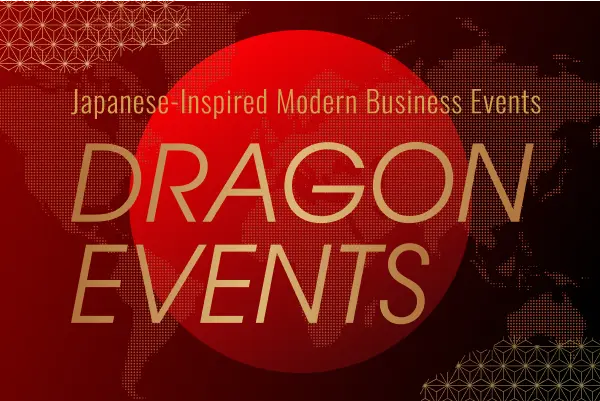Is Occupational Therapy Sustainable Too?!

Hello! I’m Yoshimura from GP.
Actually, I come from a medical background — I graduated from medical school and hold a national license as an occupational therapist, a rehabilitation specialist. People are often surprised and ask, “Why did you join an event production company?!”
The reason is simple: I wanted to work in a field that creates entertainment and emotional impact. That desire led me to the world of event production.
Not long after joining GP, I began hearing one particular word quite often: sustainability.
Inside the company, sustainability efforts were everywhere — from reusable cups and eco-friendly desks to materials used in event production. As I learned more about sustainability, I was reminded of what I had studied in school, and it struck me:
“Isn’t occupational therapy actually a very sustainable field?”
What Is Social Sustainability?
Sustainability consists of three key pillars: environmental, economic, and social sustainability.
- Environmental sustainability: Protecting nature and preserving a planet where future generations can live safely.
- Economic sustainability: Ensuring stable, long-term economic activity so that people can maintain their livelihoods.
- Social sustainability: Building a society where everyone can live with dignity and peace of mind.
Among these, the social aspect is often the least visible — yet it’s the one most closely tied to our humanity.
It includes health, education, community, diversity, gender equality, and fairness — all the elements that enable people to “live as themselves” and sustain a fulfilling life.
What Is Occupational Therapy?
Occupational therapy is a healthcare profession that supports people who face challenges in daily life due to illness, injury, or aging, helping them regain a sense of normalcy and independence.
The term occupation here doesn’t just mean “job” — it includes every meaningful activity in daily life: dressing, eating, going out, cooking, or engaging in hobbies.
By focusing on activities that hold personal meaning for each individual, occupational therapy promotes both physical and mental recovery, empowering people to live true to themselves.
Occupational Therapy and Social Sustainability
According to the Japanese Association of Occupational Therapists (2018):
“Occupational therapy is a therapeutic, educational, and supportive practice focused on human occupation, carried out in fields such as medicine, health, welfare, education, and employment, to promote health and well-being.”
This aligns perfectly with SDG Goal 3: Good Health and Well-being — ensuring healthy lives and promoting well-being for all at all ages.
To achieve a society where everyone enjoys physical, mental, and social well-being, we must:
- Look beyond hospitals and focus on the spaces that connect individuals with society — such as homes, workplaces, and communities.
- Provide highly individualized care that reflects each person’s values and aspirations.
It’s not just about restoring function or providing temporary care.
It’s about supporting each individual’s quality of life — exploring “How do I want to live?” and “What does being myself mean?”
In other words, occupational therapy is inherently a building block of a sustainable society, deeply tied to social sustainability through its mission to support human health and well-being.
Occupational Therapy and Event Production
Interestingly, occupational therapy and event production share a common philosophy:
the ability to distinguish between purpose and method — and to focus on the essence.
In occupational therapy, when a patient says, “I want to cook again,” the therapist doesn’t simply start cooking exercises.
Instead, they first ask, why do you want to cook?
If cooking itself is the hobby, the therapist provides step-by-step support based on physical and environmental needs.
But often, patients want to cook because it’s part of their family role.
In that case, therapy may not focus solely on cooking, but rather on finding other meaningful ways for that person to fulfill their role and feel a sense of identity.
The essence isn’t cooking — it’s living as oneself.
Events are the same.
At GP, we always start by clarifying why a client wants to hold an event and what outcomes they hope to achieve.
The event itself is not the goal — it’s a means to realize a deeper purpose, such as improving employee engagement or strengthening corporate culture.
An event producer turns a client’s purpose into reality through an event.
An occupational therapist supports a patient’s sense of self through meaningful activities.
Different fields, same essence: turning intentions into tangible experiences.
In Conclusion
Although I’m no longer working as an occupational therapist in a clinical setting, the mindset I developed during my studies is deeply rooted in how I approach my work today.
The principles of occupational therapy — understanding people, purpose, and meaning — continue to shape how I plan and produce events.
As a member of the HR team moving forward, I hope to apply what I learned through occupational therapy to contribute to social sustainability, and to think deeply about how I can make a positive impact within that space.

SUPERVISED BY

A collective of event production professionals handling the planning, production, and management of over 250 events annually.
From internal gatherings like shareholders' meetings, anniversaries, and award ceremonies to external PR events and exhibitions, we design and deliver optimal communication solutions. Whether in-person, online, or hybrid, we give form to the messages companies wish to convey.




